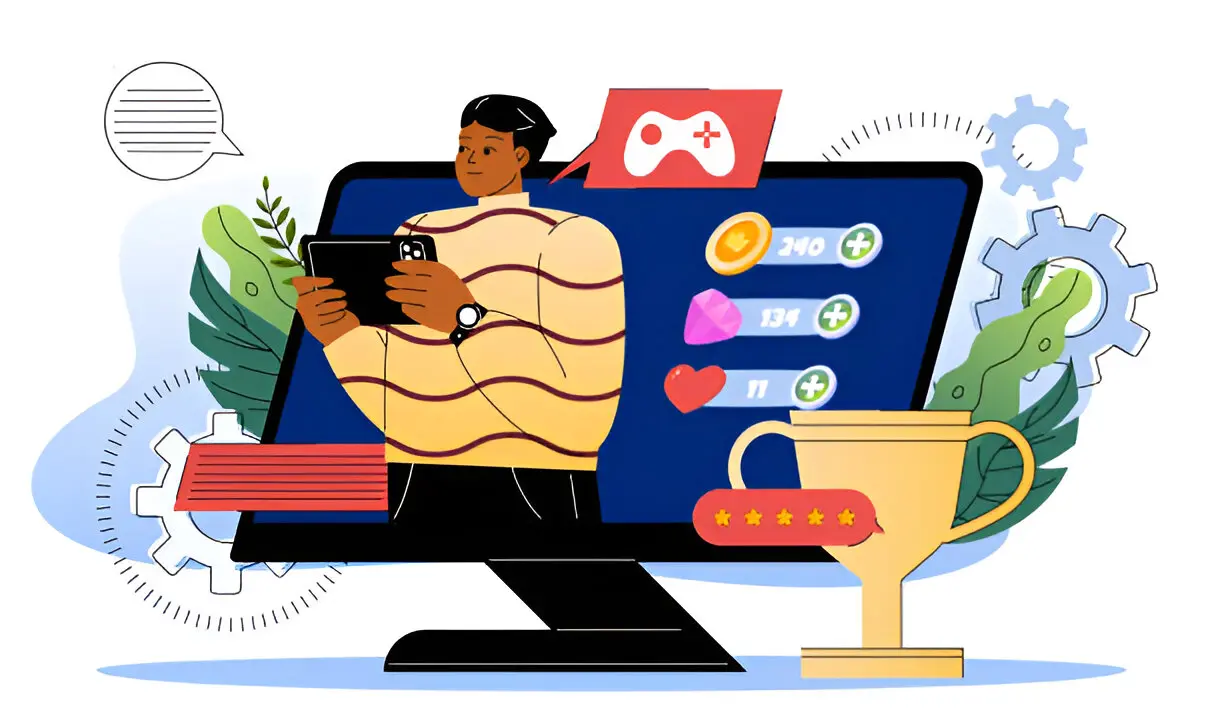Beyond the Game: The Social Benefits of Online Gaming
Online gaming is often seen as a solitary pursuit, with players isolated behind screens. However, this perception couldn’t be further from the truth. Beyond the captivating graphics and challenging gameplay, online gaming has evolved into a powerful social platform, fostering connections and communities that transcend physical distance. 🌍
Building Communities and Friendships
For many, online games are a primary source of social interaction. Massively multiplayer online role-playing games (MMORPGs) like Final Fantasy XIV and competitive team-based games like Valorant require players to communicate and cooperate to achieve a shared goal. This collaborative environment naturally builds a sense of camaraderie and teamwork. Players form guilds, clans, and teams, creating tight-knit communities where they not only strategize for victory but also share personal stories and offer support.
For individuals who may feel socially anxious or isolated in real life, these digital communities can be a safe space to connect with others who share their interests. Research has shown that friendships forged online can be just as meaningful and real as those made offline. The “shoulder-to-shoulder” nature of gaming—where friends bond over a shared activity rather than through direct, face-to-face conversation—is a powerful way to build and maintain relationships.
Developing Social Skills
Online gaming isn’t just about fun; it’s a dynamic training ground for valuable social skills. Through in-game communication and collaboration, players learn to:
- Communicate effectively: Whether it’s a quick call-out in a fast-paced shooter or a detailed plan for a raid boss, players must learn to convey information clearly and concisely.
- Resolve conflict: In a group setting, disagreements are inevitable. Players learn to navigate different personalities, negotiate strategies, and work through conflicts to keep the team moving forward.
- Exercise leadership: Experienced players often take on leadership roles, guiding newcomers and coordinating group efforts. This provides a low-stakes environment to practice and develop leadership abilities.
A Sense of Belonging
Online gaming communities can provide a strong sense of belonging, which is crucial for mental well-being. This is particularly true in games where players have a collective identity, such as being part of a guild or a specific fandom. This sense of shared purpose and identity can boost self-esteem and reduce feelings of loneliness.
Even in more casual genres, the social aspect is thriving. For example, some pkv games platforms now integrate chat functions and social leaderboards, allowing players to share in the excitement of a big win or to commiserate over losses. The quest for a qq online (an Indonesian slang term for a game with a high win rate) can become a shared goal among community members, further strengthening their bond as they exchange tips and celebrate successes together.
Conclusion
The world of online gaming is a vibrant and evolving social landscape. It’s a place where friendships are forged, skills are honed, and communities are built. While the entertainment value is what draws many in, the genuine human connection and social benefits are what keep them coming back. It’s clear that online gaming is much more than just a game—it’s a vital social tool in the modern digital age.
Also Read-Let’s Conquer the Road Together – Driving, Parking, and Safety Simplified

